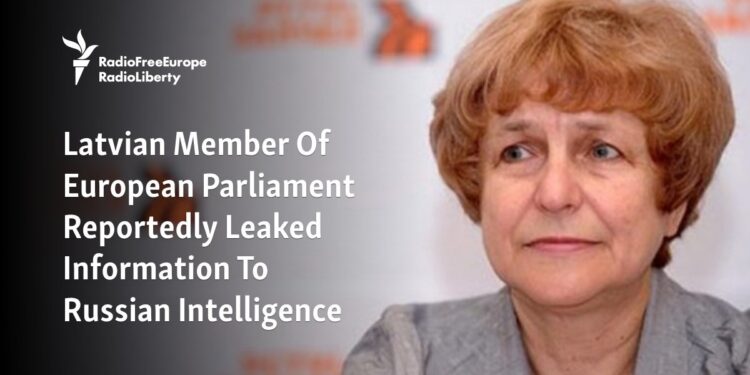The opposition framed the vote as a choice between the West and Russia and between democracy and authoritarianism, a narrative echoed by officials in the United States and Europe, who have been critical of Georgian Dream for democratic backsliding.
Tensions were high in the run-up to the vote, with Georgian Dream claiming the West was interfering in the election and the opposition accusing Russia of spreading disinformation.
Street Violence
Scuffles and accusations of fraud surfaced during the vote.
An RFE/RL correspondent reported an incident in the southern city of Marneuli, where a member of an opposition party in a voting station was allegedly beaten up by a Georgian Dream representative amid reports of ballot-stuffing.
In Rustavi, a city some 20 kilometers southeast of Tbilisi, RFE/RL correspondent Davit Mchedlidze was verbally abused and prevented from doing his job at a polling station by unidentified individuals who attempted to take his phone away.
A witness told RFE/RL that the unidentified persons were on the territory of the precinct, in violation of the law. Although the police were called, none arrived, the witness told RFE/RL.
Observers for the Organization for Security and Cooperation in Europe (OSCE) who monitored the election will hold a press conference on October 27 to present their take on the fairness of the vote.
The Young Lawyers Association, a nongovernmental organization, said it observed “significant violations” of the electoral process, including physical violence, threats of violence, interference with the work of polling observers, and the violation of vote secrecy.
The group said its observers recorded about 300 “instances of irregularities.”
Russian Reaction
Georgian Dream was founded by Ivanishvili, Georgia’s richest man, who made his fortune in Russia.
After casting his ballot, Ivanishvili urged Georgians to show up and vote in large numbers, while accusing the opposition of being in the service of an unnamed “foreign state” that would drag Georgia into a war against Russia.
“We have a very simple choice: either we elect a government that will serve you, the people of Georgia, Georgian society, take care of the country, or we elect an agent of a foreign state that will only follow orders from abroad,” Ivanishvili said, adding that Georgia would then be faced with “catastrophe and ruins.”
The Kremlin has made no secret that it prefers a victory by Georgian Dream.
Margarita Simonyan, the chief editor of the Kremlin-funded news agencies RT and Sputnik, cheered the election results.
“Georgians won! Well done,” she wrote in a tweet, implying Western interference.
Opinion polls show that Georgians are broadly supportive of joining the EU and NATO but are also keen to avoid conflict with Russia and are deeply conservative on issues such as LGBT rights.
Among the controversial bills that Georgian Dream has passed is a law requiring groups that receive 20 percent or more of their funding from abroad to register as “foreign agents.”
Opponents dubbed it the “Russian law,” describing it as authoritarian and inspired by similar laws used to curb dissent in Russia.
Passage of the legislation earlier this year drew massive protests and prompted the United States to impose sanctions on several Georgians and threaten to end aid to Tbilisi.
The EU may consider temporary cancellation of its visa-free regime with Georgia if the elections are “not free and fair,” the bloc’s ambassador to Tbilisi said in September.
Other controversial legislation has clamped down on gay rights.
“This is a referendum between war and peace, between immoral propaganda and traditional values. This is a referendum between the country’s dark past and a bright future,” Prime Minister Irakli Kobakhidze said after voting.
Opposition Groups
A new electoral rule put in place prior to the vote requires parties or coalitions to receive at least 5 percent to make it into parliament. That motivated Georgia’s opposition parties to form coalitions that have a better chance of making it over that threshold.
The four main opposition groups directed their fire at the ruling party rather than each other, having had the common goal of ending 12 years of rule by Georgian Dream and reviving Georgia’s stalled bid to join the European Union.
They had agreed that in the case of an opposition victory, they would allow Zurabishvili to form a technocratic government that would restore good relations with the West and repeal the most authoritarian laws that Georgian Dream passed in the run-up to the campaign.
Zurabishvili, whose role is largely ceremonial, has been at odds with Georgian Dream.
Source link : https://www.rferl.org/a/latvia-mep-leaked-russian-intelligence/32796873.html
Author :
Publish date : 2024-01-29 17:51:00
Copyright for syndicated content belongs to the linked Source.



